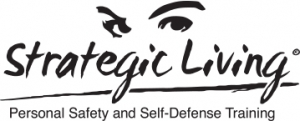For this final blog post of 2021 I’m going to be thinking about making better choices. How to think about the process of making decisions, so they can be better ones.
What makes a “better” decision? That’s up to you. Consider what you want, and what direction you want your life to go. What do you want to bring MORE of into your life, and what do want LESS of?
One book I’ve used as a reference is Yes or No: The Guide to Better Decisions, by Spencer Johnson. It’s written as an allegory, meaning it’s in a story format to make its points. While it’s a bit reductionist, I think it makes a good starting point.
In Yes or No, we’re asked to consider six questions. Three of these questions are more intellectual/logical, three are more about being in touch with your feelings.
But before we even get to the questions, here’s a bit of Johnson’s advice to begin. STOP any action you already know is a bad choice. That’s taking up too much of your energy and time already, and gets in the way of your willingness to make change.
The six questions are:
- Is this a real need, or something you want?
- Are you considering a range of different options?
- Consider the consequence of each choice?
- Are you being honest with yourself?
- Do you trust yourself?
- Do you believe you deserve good things in life?
You can use this process on any kind of decision, big or small. Maybe practice on a few smaller choices, just so that you get the idea and flow. However, this process is going to be much more useful in situations where the outcomes are more long-lasting and significant, or where other people are trying to influence your choices (and you’re doubting they have your interests in mind).
First question first. Is this a real need? Who gets to define what is a “real” need? The ability to name, to define something, and have others buy into that, is power. It can be subjective, and change over time. When you get to decide what you really need or want (and, BTW, there’s nothing wrong with WANTS), that’s owning your power.
Think to a time when you were undecided, and others were trying to influence you about what you should need. How did they try to persuade you about what you really needed (or wanted)?
Are you looking at a range of options? This doesn’t mean you have to test-drive each and every product, you could be looking at a range of offerings that will have their own advantages and drawbacks. And this question dovetails with the next one, considering the consequences of each of the options. Maybe you’re considering job offers, or what college to attend, or moving to a new apartment. What are some of the issues? What would be the impact of location — ease of access to shopping and transportation and quiet? Cost? Social environment? Would it change your strategies of safety planning?
Now that we’ve looked at the first three questions, time to consider the second three. Remember, those first three are called “intellectual” or based on logic and reason. The second three are based more on emotion, on how you feel about this choice.
Frankly, we all more often make decisions based on our feelings, then use our intellect to justify them. So the feelings part is not — should not be treated as — an afterthought or aside. I think this is the more essential set of questions.
Are we being honest with ourselves about our situation? About our finances? About our needs and priorities? Are you seeing the lines where your responsibilities begin and end? For instance, in many emotionally manipulative relationships, one person tries to make the other feel responsible for their feelings. As we all know — at least intellectually — we are responsible for taking care of our own feelings, not everyone else’s.
Does your decision show that you trust yourself? Again, in many emotionally manipulative relationships, one person tries to undercut another’s self-trust by constantly criticizing them about anything, little or big. They can lie and “gaslight” the other, trying to convince them that what they see is not real, sometimes even calling them “crazy.” Or telling them outright ‘no, you’re not feeling that.’
Do you deserve better? Do you deserve to have good things happen? People in highly toxic relationships can hear “you’re lucky to have me, you’re so stupid or ugly or [fill in the blank with your favorite derogatory term] that nobody else will ever care about you.” Even if you don’t hear this sort of crap outright, over time our life expectations may have been tempered just by daily weathering, so that you can feel that this is about as good as you can expect. Maybe you think this relationship is OK because all spouses are like this, or all supervisors get away with that, or this is what coaches are supposed to do. But do you deserve better? If you’re mulling over this question, betcha the answer is yes.
Finally, we like to think we make decisions on our own. Not really true. We are social creatures: we tend to make choices and decisions similar to those choices and decisions made by others with whom we identify. Never underestimate the need to fit in, and that’s a real need. Johnson’s lack of consideration here is one of the biggest drawbacks of his little book; nevertheless it’s a good starting point for making better choices.
EmPOWERment Self-Defense is one way to open up your range of choices. Our winter class schedule is posted, see if you can make that choice today.

 of what’s news-worthy, and what’s in the news cycle reflects more a cultural fear than real trends in events.
of what’s news-worthy, and what’s in the news cycle reflects more a cultural fear than real trends in events.